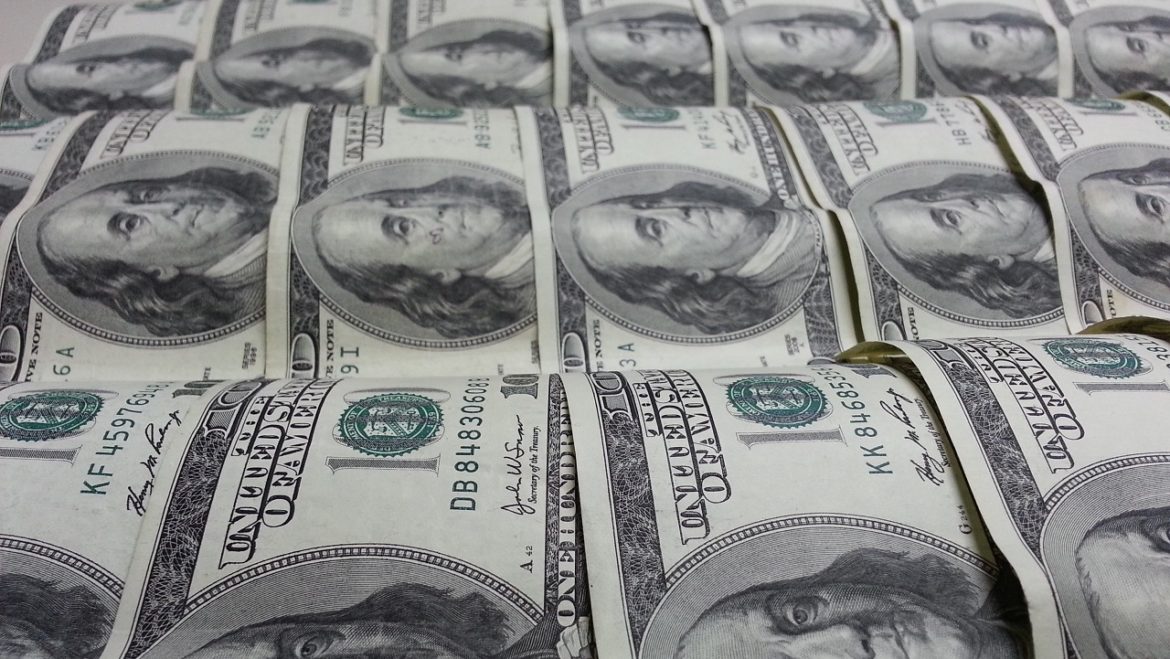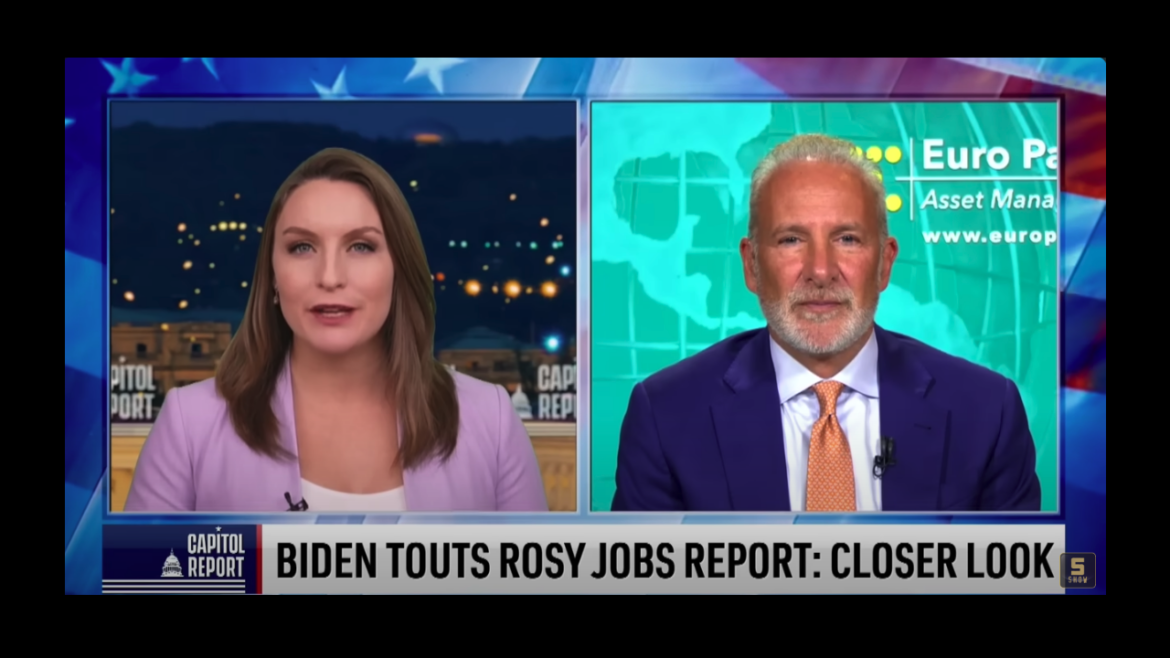Precious metals are apparently waking up. And here is where you can find the best deals.
Site:
Precious metals news
 Salvation Army Red Kettles Receive $2,000 Worth of Rare Gold Coins in Nationwide Donations
Salvation Army Red Kettles Receive $2,000 Worth of Rare Gold Coins in Nationwide DonationsDec 12, 2023 - 11:58:40 PST
Secret Santas in various U.S. cities are spreading holiday cheer by generously donating to the Salvation Army's red kettles. Shoppers encounter these kettles while seeking gifts, with volunteers braving diverse weather to collect donations. In Indiana, Vermont, and Michigan, volunteers were delighted to find rare gold coins worth approximately $2,000 in the kettles, a pleasant surprise from anonymous donors.
US Senator Elizabeth Warren's bill targeting illicit cryptocurrency use gains support from five more Democratic senators, bringing the total co-sponsors to 19. The bill seeks to enhance anti-money laundering regulations in the crypto space.
The US government's debt has surged alarmingly, rising by 50% in just four years, from $22.72 trillion in 2019 to $33.8 trillion currently. This growth outpaces GDP, pushing the debt-to-GDP ratio to a staggering 122%. Government spending far exceeds tax revenues, leading to increased borrowing and escalating interest payments, which are projected to reach nearly $1 trillion. This unsustainable trajectory of deficit spending signals looming fiscal and economic crises, demanding immediate attention and preparation.
 The Alarming Outcomes of a LIQUIDITY SQUEEZE - Rick Rule Joins Mike Maloney
The Alarming Outcomes of a LIQUIDITY SQUEEZE - Rick Rule Joins Mike MaloneyDec 12, 2023 - 07:28:43 PST
In this eye-opening conversation, Mike Maloney and guest Rick Rule dissect the hidden impacts of taxes on American households, challenging conventional views on inflation.
Federal budget projections indicate persistent $1 trillion+ deficits annually through 2033, suggesting the U.S. may never see a deficit below $1 trillion again. In the first quarter of 2024 alone, the U.S. Treasury anticipates borrowing an additional $816 billion, primarily for deficit spending, underscoring the rampant nature of current fiscal policies. This trend highlights a significant and ongoing challenge in controlling the national deficit.
 Severe Recession Risk as Stock and Job Markets Show Red Flags Could be Coming for 2024
Severe Recession Risk as Stock and Job Markets Show Red Flags Could be Coming for 2024Dec 12, 2023 - 06:23:02 PST
Paul Dietrich of Briley Wealth predicts a severe US recession in early 2024, citing historical precedents where significant stock market gains, like those seen this year, preceded economic downturns. He references the patterns observed before the recessions of 2001, 2008, and 2020, where stock rallies were followed by sharp contractions. Dietrich also notes weakening labor market signals, including rising unemployment claims, which further support the likelihood of an impending recession.
In a recent interview with Forbes, economic commentator and historian Jim Grant warned that we haven't fully felt the inevitable fallout from the "free money era."I think that the consequences of more or less 10 years of proverbially free money are going to play out in the credit markets.”
 Billionaire Jeffrey Gundlach Says House Prices May Drop Along With Market & Recession Before Summer
Billionaire Jeffrey Gundlach Says House Prices May Drop Along With Market & Recession Before SummerDec 12, 2023 - 06:16:45 PST
Jeffrey Gundlach forecasts a bleak economic outlook, with bonds favored over stocks due to growing banking anxieties, and anticipates a significant decline in house prices. He expects a recession to emerge by summer, exacerbated by high mortgage rates and a shift from bank deposits to safer money-market funds. Additionally, Gundlach points to the alarming risk of soaring national debt payments, which could strain federal finances. Key indicators, including an inverted yield curve and negative economic data, further reinforce his prediction of a deepening economic downturn.
The middle class faces significant challenges in the housing market, highlighted by a substantial increase in mortgage payments. According to The Wall Street Journal, the average monthly new mortgage payment has risen 86%, from $1,787 to $3,222. This increase is due to a 33.2% rise in home prices and a 181% surge in the 30-year mortgage rate, significantly impacting housing affordability.
 Core CPI Surges Beyond Forecasts with Rising Used-Car Prices Counteracting Energy Decline
Core CPI Surges Beyond Forecasts with Rising Used-Car Prices Counteracting Energy DeclineDec 12, 2023 - 06:00:12 PST
November's CPI saw a slight 0.1% monthly increase, with a year-over-year rise of 3.1%, indicating persistent inflation. Core CPI services excluding shelter rose sharply, challenging the Federal Reserve's path towards rate cuts. Significant increases in used car prices and steady shelter inflation suggest ongoing price pressures. The overall consumer price index has surged 17.5% since President Biden's term began, reflecting a concerning inflationary trend. This situation complicates the Federal Reserve's decision-making on future rate adjustments.
Most mainstream pundits characterized the November jobs report as a "Goldilocks" report. Job growth was strong enough to support the "soft landing" narrative but not so strong it might scare the Fed into raising interest rates again.President Joe Biden used the report to boast about his economic achievements. But according to Peter Schiff, Biden doesn't have anything to boast about. He talked about it during a recent interview on the Capitol Report on NTD News.
In a 2002 speech, Ben Bernanke, then a US Federal Reserve governor, emphasized the dangers of deflation in modern economies. This warning is particularly relevant for China today, as it faces a unique challenge of deflation, unlike most major economies still combating inflation. China's gross domestic product deflator has fallen to -1.4%, showing contraction for two consecutive quarters, leading to a nominal GDP growth of just 3.5% in the third quarter, significantly lower than the US's 6.4%.
The European Central Bank, after halting its aggressive interest rate hikes in October, faces investor pressure to reduce borrowing costs. At its upcoming meeting in Frankfurt, the ECB is anticipated to maintain current rates, despite eurozone inflation nearing the 2% target. The central bank is expected to counter market expectations for an early rate cut, emphasizing ongoing concerns about price increases, particularly from rising wages.
Wall Street anticipates Tuesday's consumer price index to assess the disinflation trend before the Federal Reserve's decision on Wednesday, where rates are expected to hold steady. The key focus will be on the Fed's response to the market's dovish expectations and the potential impact of its economic projections and press conference on market dynamics.
The Fed is expected to hold rates steady this week. Wall Street will be watching for any signs that the most aggressive rate-hiking campaign since the 1980s is now over. Wilmer Stith of Wilmington Trust indicates no further Fed funds rate hikes are expected, with the focus now on maintaining the current 5% rate. Inflation is nearing the Fed's 2% target, and while some officials consider additional hikes, Fed Chair Jerome Powell is likely to maintain a cautious stance on rate changes.
The silver market is on the brink of a significant shift due to an impending silver shortage. Despite current price setting mechanisms, the fundamental law of supply and demand is expected to ultimately dominate, potentially leading to a dramatic increase in silver prices. The market awaits this pivotal moment, which could redefine silver's value and market dynamics.
 World Gold Council Says Geopolitics and Central Banks Could Keep Gold Demand Hot in 2024
World Gold Council Says Geopolitics and Central Banks Could Keep Gold Demand Hot in 2024Dec 11, 2023 - 11:55:56 PST
Gold prices hit a record high, surpassing $2,100 per ounce, driven by geopolitical tensions and strong central bank buying. These factors, alongside the potential for a global recession, position gold as a key investment hedge, with its demand expected to remain robust into 2024. The World Gold Council anticipates continued strong central bank purchases, further supporting gold's positive market trend.
The U.S. faces dire financial challenges, including massive federal budget deficits and significant payments to the Treasury due to Federal Reserve balance sheet losses. The situation is exacerbated by $212 trillion in unfunded promises, with debt reaching 200% of GDP. This unsustainable fiscal path, influenced by Modern Monetary Theory's approach of unchecked money printing, raises serious concerns about the future affordability of these vast obligations.
 Latest NY Fed Survey: Year-Ahead Inflation Expectations Tumble To Lowest Since April 2021
Latest NY Fed Survey: Year-Ahead Inflation Expectations Tumble To Lowest Since April 2021Dec 11, 2023 - 11:38:52 PST
The NY Fed's November survey indicated a decline in 1-year inflation expectations, the lowest since April 2021, while 3 and 5-year forecasts remained steady. This drop is mainly attributed to decreasing gas prices. The survey also showed a record high average full-time job offer, but Americans are less willing to move, possibly due to high mortgage rates. Despite these trends, there is a positive outlook on household finances, with increased optimism about future financial situations and a lower likelihood of missing debt payments.
In 2023, optimism for Fed rate cuts contrasts with the rarity of economic soft landings. The substantial money supply increase in 2020 led to persistent inflation, despite recent declines in money supply and rate hikes. This ongoing inflation suggests a continued devaluation of currency, reinforcing gold's appeal as a stable investment, evidenced by significant central bank purchases. The situation reflects central bank policy failures and foreshadows the likely impact of monetary contraction and the risks of monetary debasement in 2024.





